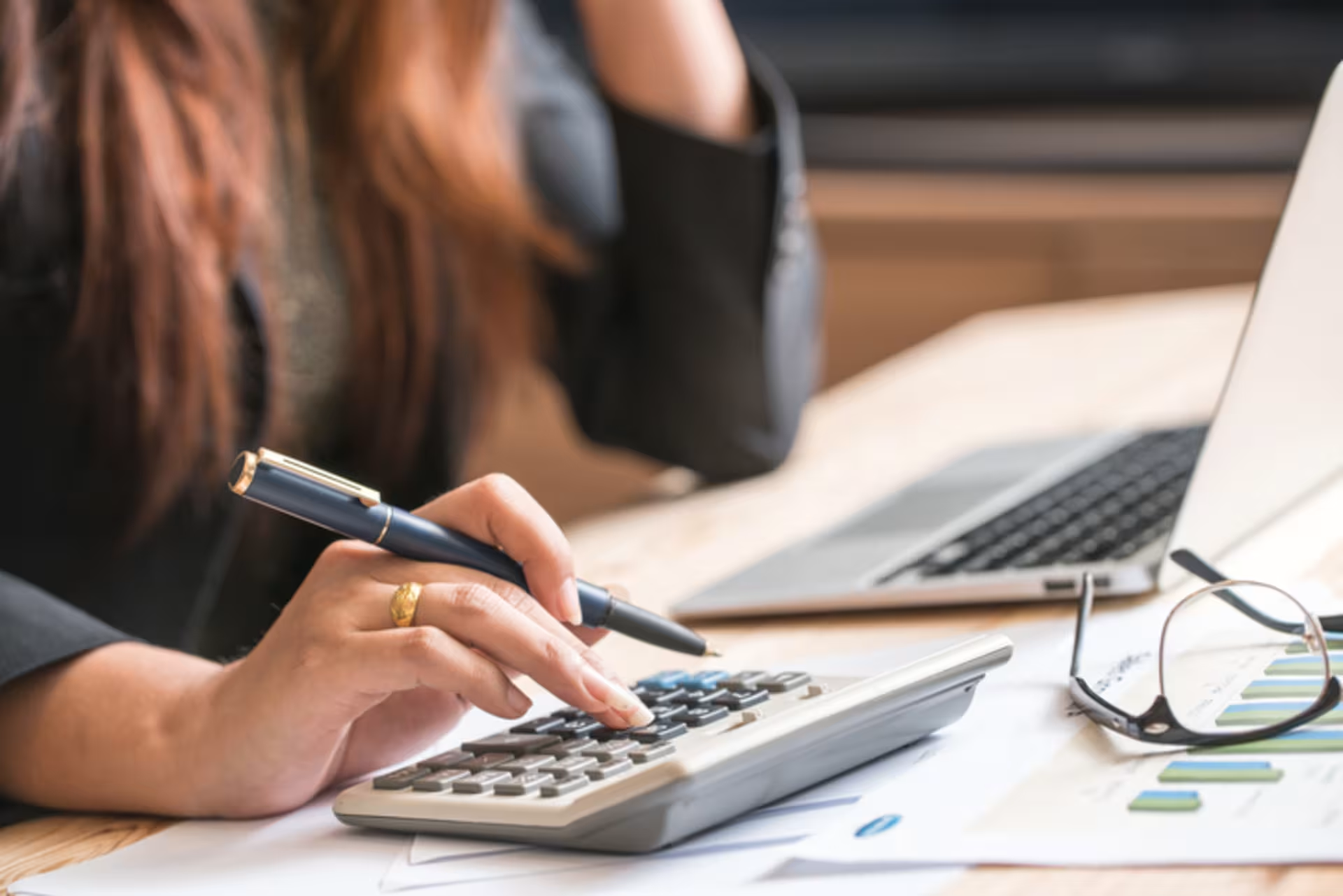Read time 6 minutes
Published on Mar 6, 2024
Read time 6 minutes
Published on Mar 6, 2024
Speak with a University Counselor today.
Approved by the academic program manager of the Colangelo College of Business on Feb. 5, 2024.
The views and opinions expressed in this article are those of the author’s and do not necessarily reflect the official policy or position of Grand Canyon University. Any sources cited were accurate as of the publish date.

No matter where your future leads you, you can prepare for it at Grand Canyon University. We offer a number of options for business-minded students, including the Bachelor of Science in Accounting degree program. Fill out the form on this page to explore your future at GCU.
As you can see, there are many career paths you may pursue with an accounting degree. Let’s take a closer look at some specific career paths.
A career as a CPA is a common choice for those who study accounting.(See disclaimer 7) These professionals work with individuals and companies, providing financial planning and tax guidance. They may work on major corporate mergers and acquisitions, as well as individual tax returns.
It is even possible to become an entrepreneur as a CPA. You may one day decide to open an accounting firm.
The job duties of a CPA will typically include:
It is important to note that not all accountants are CPAs. A CPA is an accountant who has passed the challenging CPA Exam.(See disclaimer 2)
Students who are studying accounting might want to consider a career as an insurance underwriter.(See disclaimer 8) As the title suggests, these professionals work within the insurance industry. Their primary job function is to evaluate insurance applications and decide whether to offer insurance coverage.
Their specific tasks may include reviewing insurance applications and analyzing information; assessing the degree of risk involved with providing insurance and making recommendations on whether to insure the applicant; and establishing recommended amounts of coverage and insurance premiums.
Insurance underwriters use complex software to assess applications and make coverage determinations. Some applications, such as those for car insurance, are relatively straightforward. Others are complex, such as workers’ compensation applications. In all cases, insurance underwriters must carefully consider the degree of risk involved.
If you see yourself in a corporate environment someday, you might consider pursuing a career as a market research analyst. The main responsibility of these professionals is to evaluate the marketability of a new product or service. Competencies in accounting can be helpful for this career.(See disclaimer 9)
Market research analysts accomplish this by analyzing datasets and by monitoring and predicting sales trends. Although they work in the marketing and advertising field, these professionals primarily work with data — they are not copywriters.
The typical job responsibilities of a market research analyst can include the following:
If you are considering this career path, it is important to know what makes a great accountant. Some of the valuable skills that accountants need include:(See disclaimer 2, 3)
While there is no set list of responsibilities that every accountant will encounter during their career, there are a few common responsibilities that many accountants handle, which include:
Considering all this, you may be wondering, Do you need a degree to be an accountant? Yes, accountants typically need at least a bachelor’s degree, while some employers prefer to hire those with a master’s degree.(See disclaimer 2)
You may be asking yourself, Is accounting a good job? It certainly can be if you’re fascinated by all things finance. An accountant is responsible for maintaining and analyzing the financial records of individuals, businesses or organizations. Accountants ensure the accuracy of financial reporting and tax compliances to provide insight that can help their clients make informed financial decisions.
Because dealing with finances is a significant task, various accounting subfields have developed to manage different processes and keep things running smoothly. For example, some accountants specialize in handling a business’ taxes while others focus on international accounting.
Accounting plays an important role in every industry, which is why there are many different types of jobs you can get with an accounting degree. After earning an accounting degree, graduates can pursue a variety of accounting-related careers, including:(See disclaimer 5, 6)
If you’re good with numbers, you might be thinking of pursuing an accounting degree. You may also be exploring questions such as, What can you do with an accounting degree? What jobs you can get with an accounting degree? And is accounting a good job?
Accounting can indeed be an appealing career field, and what’s more, there are many different types of accounting jobs to choose from. One of the reasons why accounting can be a great choice is its job growth projections.
The U.S. Bureau of Labor Statistics (BLS) estimates job growth for accountants and auditors to increase by about 4% from 2022 to 2032, as fast as average, estimating an addition of 67,400 jobs in the field.(See disclaimer 1 )Keeping this job outlook in mind, here are some additional things to consider when pursuing a career in accounting.
After earning a bachelor’s degree, aspiring accountants may wish to earn their Master of Science in Accounting (MSA) degree or Master of Business Administration (MBA) with an Emphasis in Accounting as well as their certified public accountant (CPA) credential. A master's degree in accounting allows you to develop in-depth knowledge of advanced accounting topics and can help you position yourself for possible career advancement.